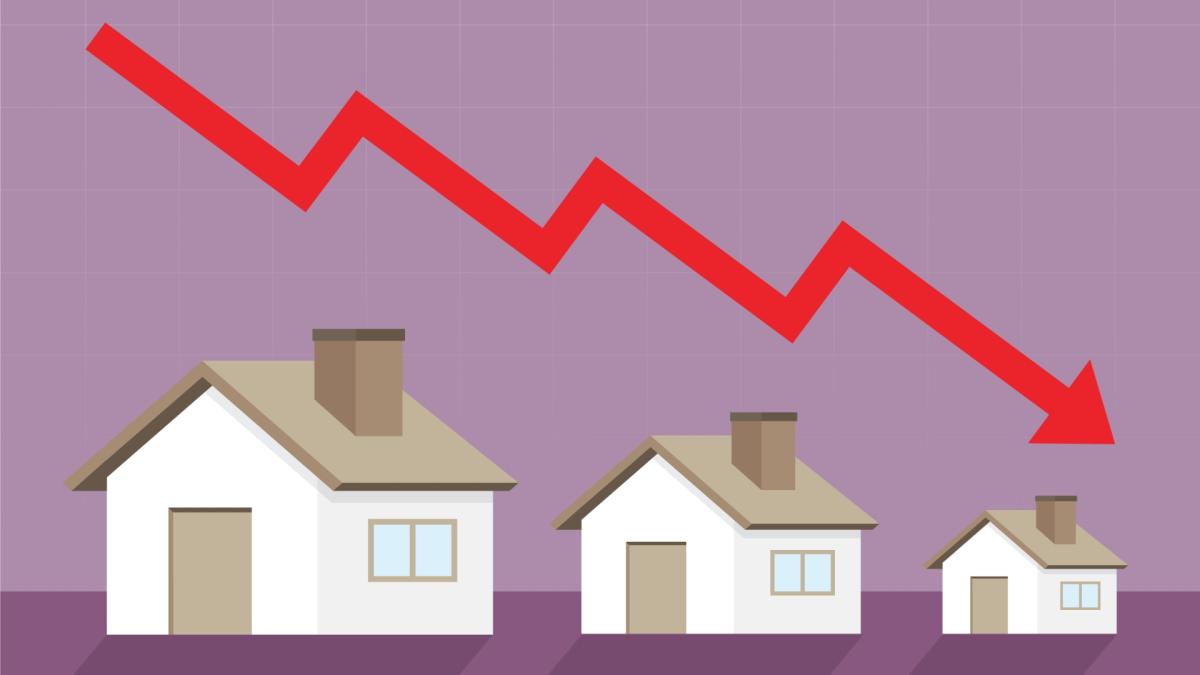The housing market can be unpredictable. Rapid price increases, interest rate hikes, and economic uncertainty have led many experts to speculate about a potential housing market crash correction or crash. While no one can predict the future with certainty, preparing financially can protect you and your family from uncertainty and provide peace of mind.
This guide will walk you through actionable steps to get your finances in shape in case the housing market crash takes a downturn. From assessing your current financial situation to diversifying investments, here’s everything you need to know.
Assess Your Current Financial Situation
Preparing for any kind of financial uncertainty starts with understanding where you currently stand. Take the time to evaluate your assets, debts, and income to get a clear picture of your finances.
Tips for a Clearer Picture:
- List Your Assets: Include your savings, investments, and real estate properties.
- Measure Your Debts: Break down all outstanding mortgages, student loans, credit card balances, and car loans.
- Calculate Your Income: Review your monthly income from all sources to understand your cash flow.
The goal here is to determine your financial health. A mindful assessment can help you identify areas that need improvement, such as building your savings or reducing unnecessary expenses.
Build an Emergency Fund
Unexpected events, like job losses or declining home values, can happen during a housing market crash. Having an emergency fund ensures that you have a financial safety net to fall back on if these situations arise.
How Much to Save:
Experts generally recommend saving 6-12 months of living expenses. This should include rent or mortgage payments, utilities, groceries, and other essentials.
Where to Keep It:
Choose liquid savings accounts, like high-yield savings accounts or money markets, that allow quick access to your funds when needed. Avoid locking your emergency fund in investments tied to market performance, as you might struggle to access your money in times of need.
Pro Tip: Start small. Even saving $50 a week can eventually add up to a meaningful emergency fund over time.
Reduce Debt
Carrying high levels of debt can make your financial situation even more precarious during an economic downturn or housing crash. Reducing your debt load now will give you more flexibility and reduce financial stress if the market crashes.
Prioritize High-Interest Debt:
Focus on paying off credit cards and personal loans with high interest rates first. The quicker you eliminate these, the more you’ll save in interest payments.
Avoid Taking on New Debt:
Be cautious about incurring new debts, such as financing large purchases or taking out additional loans. Keep your spending in check, and prioritize only essential expenses.
Pro Tip: Consider using the snowball or avalanche method to pay off debts strategically.
Diversify Your Investments
A housing market crash could impact more than just property values. Ensuring that your investments aren’t concentrated in one sector is essential for protecting your financial portfolio. Diversification reduces risk by spreading your money across different investment types.
Strategies to Diversify:
- Stocks and Bonds: Balance your portfolio between high-risk equities, low-risk bonds, and index funds.
- Alternative Assets: Consider diversifying into assets like gold, REITs, mutual funds, or even cryptocurrency if it aligns with your risk tolerance.
- International Markets: Invest globally to minimize exposure to domestic economic fluctuations.
“Diversify, diversify, diversify” isn’t just a mantra. During uncertain times, a well-balanced portfolio can be your greatest financial ally.
Review Your Mortgage
If you’re a homeowner, your mortgage terms will play a significant role in how well you weather a housing market crash. Now is the time to review your mortgage and make adjustments where needed.
Consider Fixed-Rate Mortgages:
If you currently have a variable-rate mortgage, consider refinancing to a fixed-rate mortgage. With interest rates on the rise, a fixed rate can protect you from unexpected hikes and help you maintain predictable monthly payments.
Evaluate Refinancing Options:
Check if refinancing could lower your interest rate or shorten your repayment timeline. However, keep in mind the costs of refinancing and ensure that the long-term savings outweigh the upfront costs.
Prepare for Job Loss
Economic downturns often result in layoffs across various industries, and a housing market crash can spark a similar chain reaction. Preparing for potential job loss ensures you’re ready if the unexpected happens.
Steps to Safeguard Your Career:
- Update Your Resume: Keep your resume and LinkedIn profile polished and up to date.
- Expand Your Network: Attend industry events, connect with peers on professional platforms, and maintain warm relationships with past colleagues or mentors.
- Develop New Skills: Enroll in online courses or workshops to enhance your skill set and make yourself more competitive in the job market.
Being proactive in your career can help you land on your feet quickly if layoffs occur.
Monitor the Market
While staying informed is essential, it’s equally important not to panic. Reacting hastily during economic uncertainty can lead to poor financial decisions.
How to Stay Updated:
- Follow Reliable Sources: Track market trends through financial news outlets or reputable economic blogs.
- Stay Analytical: Avoid getting swept up in sensational headlines. Focus on long-term patterns and analysis from experts.
- Don’t Overreact: While monitoring the market is wise, making knee-jerk financial decisions based on speculation can do more harm than good.
Remember, even if a crash occurs, markets generally recover over time.
Financial Preparedness is Key
While no one can predict precisely if or when a housing market crash will happen, being prepared will give you peace of mind and resilience to withstand unexpected challenges. Evaluate your current financial position, build your savings, reduce debt, and diversify your investments. Additionally, safeguarding your mortgage terms, job stability, and knowledge of market trends is essential.
Being proactive today can protect you from financial uncertainty tomorrow.
Are you ready to get serious about your financial health? Start by building your emergency fund or reviewing your investment plans. Making these small but meaningful changes today could safeguard your tomorrow.





